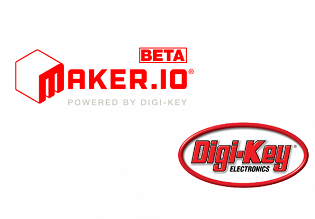

However, this situation also presented an opportunity for "the role of distributors." It wasn't just technology, as there were also shortages of some key components. Gallagher pointed out that previously, the pandemic disrupted global communications and caused significant disruptions in the global supply chain. With the global supply chain reorganization, new opportunities surface for distributors While "growth" may be a slight exaggeration, Gallagher remains optimistic about the US market, especially the aerospace industry. The main feature of the US market is its steady growth. However, over the past two years, operations have successfully returned to the same performance level as 6-8 years ago. While a seasonal slowdown is expected during the summer, the industrial sector remains highly flexible.Īs for the US market, they did encounter some challenges in the past, involving the system and management security teams. Despite issues like inflation and the energy crisis, Avnet's business in Europe has been consistently strong. Globally, the European market has displayed a resilient performance as well. In particular, he is very optimistic about the prospects in the Asian market. Every new entrant into this sector makes the situation even more exciting. In the automotive sector, for example, Avnet wasn't a major player 25 years ago, but it now has over a thousand different competitors. While the company has been severely affected by market fluctuations in the communication and industrial sectors, they have also made good progress in the medical and automotive sectors. When asked about how a distributor like Avnet will approach this new market situation, Gallagher admitted that the current industry situation is unlike anything he has seen from 1990 to the early 2000s. TSMC will be responsible for operations and hold a 70% share while European partners Infineon, Bosch, and NXP will each hold 10%. Investment in TSMC's German site is set to exceed EUR10 billion (approx. They typically have about 25-30% of their wafer fabrication outsourced to Taiwan, so it's essential to understand what they want. India is likely to serve as a balance between China and other emerging markets in the Asia-Pacific region.Īs with automotive components, Hwang stated that companies like Infineon, NXP, and STMicroelectronics (STM) are the best at providing components for EVs. Traditional automakers have high market shares in the existing automotive industry, but the future of the automobile industry will be more than just manufacturing.įor example, India is already the world's third-largest automotive market and has policies in place to attract companies to produce EVs locally. Europe has companies like BMW and Volkswagen, while Japan has Toyota and Nissan. The Chinese EV market contributes nearly 60% of the global market. The market opportunities driven by applications will be even greater in the future.

This is a stark difference from the past 20 years, which have been dominated by mobile phones and PCs. From 2023-2024, the tech industry will be driven by three key factors: semiconductors, the ICT supply chain, and AI-driven IoT (AIoT). The three key factors of industry transformation: semiconductor, ICT supply chain, AIoTīased on data from DIGITIMES, Hwang stated that he believes the focus of semiconductor industry operations is changing. It serves over 1 million customers across 140 different countries.
#Digi key price professional
This is not just a conversation between the CEO of an IC distributor and the president of a technology news outlet but also a professional exchange between a seasoned semiconductor veteran and an experienced analyst.Īvnet is a Fortune 500 company and a global electronic components distributor that provides electronic components, industrial automation components, testing and measurement products, and more. Nvidia CEO Jensen Huang's statement about "AI's iPhone moment" has also shown the global tech industry a light at the end of the tunnel.ĭespite that, has the inventory issue truly been resolved? What are the industry's long-term strategies? What kind of international perspective is required to go beyond Taiwan? These are the questions DIGITIMES founder Colley Hwang and Avnet global CEO Phil Gallagher hope to answer. The mid-to-long-term trends of the next decade revolve around clear themes such as "future cars" and "application-driven" technologies.


 0 kommentar(er)
0 kommentar(er)
